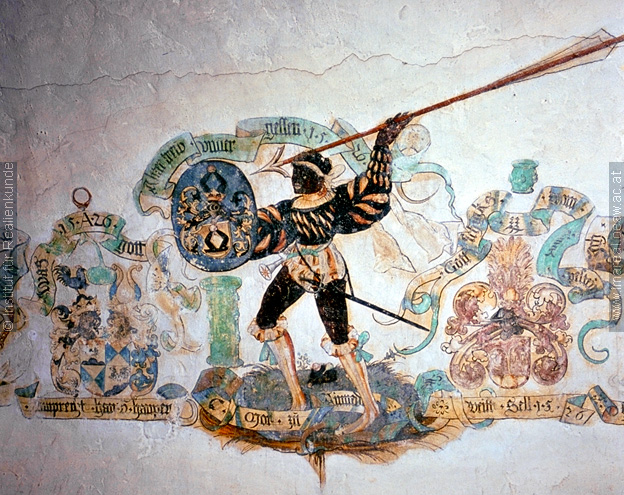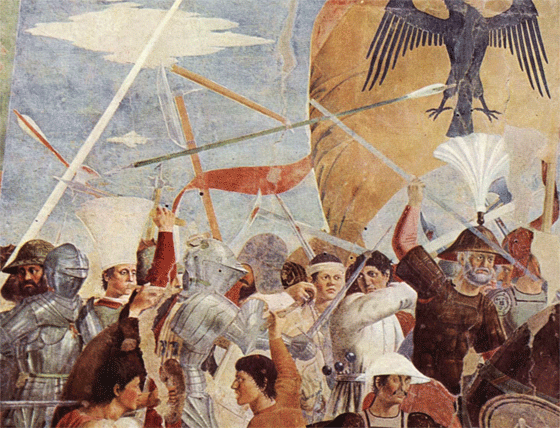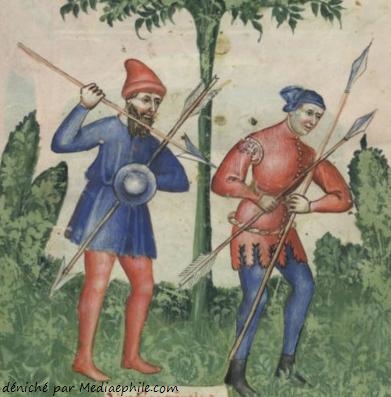Bartek: that's interesting - probably just an coincidence, but the irish mythological hero Cuchalain's magical weapon was a barbed (in some translations forked) throwing-spear called the Gáe Bolga. In the translations I've seen, it is described as splitting into multiple barbs on entry to the point that it needs to be cut out of its victim to retrieve it. (It is also described as being thrown with the foot, and having barbs which further subdivide like the roots of a tree, so a large pinch of salt is probably in order - this is a magic weapon in a heroic epic after all). However, given that the gaelic word for sword (claid or variations thereon) is apparently derived from the roman word "
gladius", so it's not inconceivable to me that the roman word "gabalus" would also have been appropriated. But I know very little about gaelic etymology.
Returning to the original question, the fact that di Grassi makes reference to "the forks or defences" and to a javelin having "three thusts" makes me wonder whether he's not talking about something like a spetum or ranseur - one of those (to me) slightly oddball polearms which look superfically like a trident. This seems to match what he says:
1) "they diminished part of the Iron thereof" - check; these forked polearms usually have a long but slender and light spike in the center.
2) "and gave the same to the forks or defenses" -check; the relatively slender forward curving prongs are the distinguishing feature of these polearms, and are useful for catching other weapons, ie. defence
3) "...is not very forcible to strike with the edge" - check; for some examples I've seen it's like trying to cut with an ahlspies!
"but all his power consists in three thrusts" - this is the part which almost convinces me - these polearms have three forward pointing spikes - the central one and the prongs - hence three thrusts.
Why di Grassi would call one of these polearms a javelin, I've no idea! But people in the middle ages and renaissance seemed to play fast and loose with weapon names and terminology - consider the pollaxe/pole axe/halberd/battleaxe debate here a while ago. None of this makes my arguement conclusively proven though!


